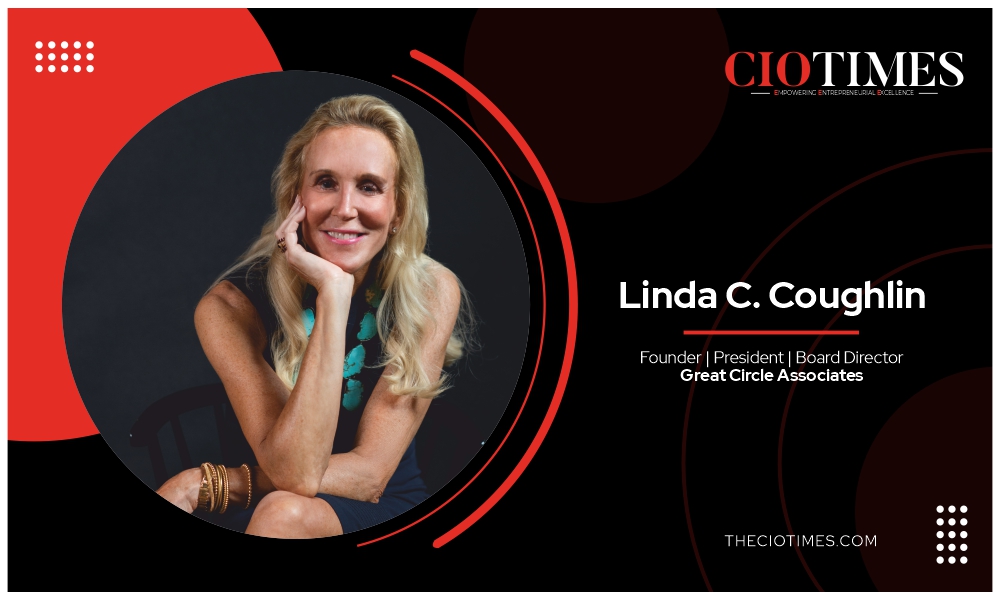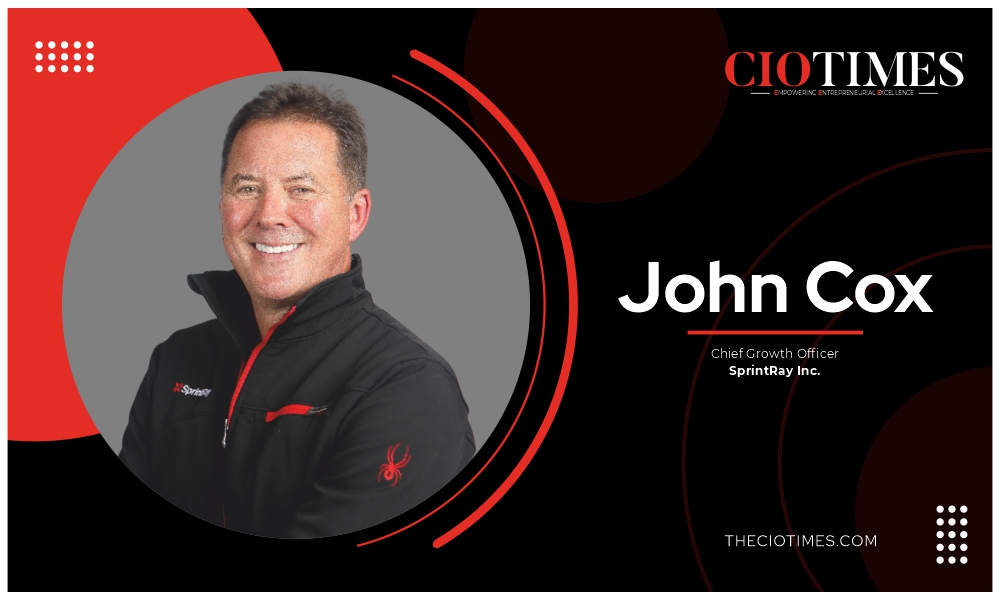Des Linden, a two-time Olympian, and 2018 Boston Marathon winner will be receiving a digital twin for her heart. This real-time, virtual replica of her heart will offer precise data on its function, efficiency, and response to varying conditions. In another set of events, the Jaguar Formula E Racing Team is also exploring the Digital Twin technology to explore the limits of the E race cars. Wondering what’s the connection between the two?
Well to start with, it is about the heart- a human heart and a machine’s heart i.e. the engine. The other similarity? Both fuel the owner’s performance – a healthy human heart is key to an athlete’s performance and an engine determines the car’s performance. Yet another similarity is the advanced use of technology which will enable Des and the Jaguar team to simulate their heart and engine in a virtual environment and understand what goes under the hood. How they perform under pressure, how much they can endure, and what would be the best way to enhance their limits and hence performance.
Science fiction?
No.
Technology?
Yes.
A digital twin is a virtual representation of a real-world physical entity, such as a product, system, or process (a physical twin) or even human organs (bio-digital twin) that can act as its identical digital partner for various uses, such as simulating, integrating, testing, monitoring, and maintaining it. So basically, it is your heart outside your body, mimicking every activity. The technology has the potential to disrupt multiple sectors and has already started to do so. In Des’s case, the technology will enable healthcare providers to see, measure, and monitor a heart – and simulate responses under varying degrees of stress – without invasive procedures. This has the potential to lead to better patient experiences and better health outcomes. In Formula E races, it can lead to better design, higher speeds, better fuel utilization, and more.
That brings us to the final common factor between Des and Jaguar Racing team which is Tata Consultancy Services.
Des joined the Living Heart Project, a partnership project between Tata Consultancy Services (TCS) and Dassault Systèmes to build a sophisticated Digital Heart for a top athlete, showing the huge possibilities of digital twins for enhancing performance and well-being, transforming and enriching lives.
On the other hand, for over a decade, TCS has been using advanced digital technology to help Jaguar Land Rover switch to electric vehicles. Currently, TCS uses cloud and digital twin technology to enable fast data access, allowing the Jaguar TCS Racing team to test the race car’s potential in a simulated environment and improve its performance in the real world.
So how has the tech-giant managed to retain its mantle of being a disruptor over the years? Let’s explore!
The Technology Giant Disrupting the World Since 1968
Tata Consultancy Services (TCS), the Indian multinational information technology (IT) services and consulting company headquartered in Mumbai, was founded in 1968. It is the second-largest Indian company by market capitalization and the most valuable IT service brand worldwide. TCS offers a wide range of IT services, outsourcing, and business solutions to its clients.
With a presence in 55+ countries and a team of 600,000 strong, TCS has the unique advantage of having contextual knowledge about a variety of customer pain points and how to tackle them. Being part of the Tata Group, India’s biggest conglomerate, gives them a sweet advantage in building and delivering quick solutions for their customers. As Sumanta Roy, Head of Middle East and Africa, puts it — they are not just tech consultants; they are here to guide clients through their end-to-end digital journey.
Beyond Just IT Services
At the core, TCS is a technology company providing IT & business solutions to its customers. But they are not your average tech company! “We are all about tech solutions, sure, but we take it a step further. We strongly believe in customer centricity and go beyond transforming businesses through technology. We believe in bringing about a real difference in all aspects of our partners’ businesses – be it the transformation, their end customers, or the communities they serve,” says Sumanta.
With all the new disruptions in the tech world, businesses are confused about which strategy to adopt, and what will work best for them, their employees, and their customers. Often, looking at digital transformation as a siloed approach has long-term implications, and businesses lose out on real benefits. Digital transformation is not merely an item with CIOs or CTOs anymore in an organization. In any function or department, there is a need for tech enablement and thinking through the lens of digital-first.
TCS enables its customers to adopt this approach and ensures they are with them throughout the end journey, not just digital transformation or implementation, but also even further in adapting to newer changes, planning for the future, etc. Like the digital twin technology. According to TCS’s 2023 Digital Twindex report, the futurists and industry experts believe digital twins will make their way into every government, business, home, and human by 2035.
A Long-term Association
Sumanta has been with TCS for over three decades now. Following graduation, he ventured into entrepreneurship for a year before pursuing an MBA. He landed a spot at TCS through campus placement, and that’s how the journey started.
Sumanta started his TCS gig with a software product testing project, and then transitioned swiftly into sales, focusing on Indian SMEs and expanding to neighboring countries. His responsibilities included establishing channels in Nepal and Sri Lanka at that time.
During the Y2K era, he assumed the role of a product manager, overseeing new product development, branding, and manufacturing. Subsequently, Sumanta relocated to Cincinnati, Ohio, as the Regional Head for Ohio and Kentucky. Over three years, he managed relationships with five large Fortune 500 companies. “Those were exhilarating times, and I guided my customers about the gains and pitfalls of the outsourcing journey and learned a lot at the same time,” he says.
Returning to Mumbai, he shifted to the “buy side” of the TCS business. He was the head of all IT procurement of the company and managed a large budget. It was during this time that TCS went public. “And that experience was something else! It was the largest IPO in the Indian stock market, and I was actually in the thick of the process. At this time, TCS sold the shares of some of its JVs, bought back others, and consolidated its BPO business,” recalls Sumanta.
After a while, Sumanta decided to return to the “sell side”. He focused on BPO/BPS opportunities for the East Coast, based in New Jersey. Post that he assumed responsibility for the Utilities business for TCS India before becoming accountable for all sales in the country.
In 2019, Sumanta moved to Dubai and now he oversees TCS’ interests in the Middle East and Africa market, juggling the interests, and managing operations across nine countries. Quite the journey, it has been – one that he looks back on quite fondly!
A Flexible Leader
As a leader, when it comes to his working style, Sumanta keeps a flexible approach. There are three things he is particular about:
- First and foremost, customer satisfaction, which by default, is what they achieve to build in their business every day.
- Second, is financial management, which includes revenues, sales, budget management, etc.
- And finally, the growth of his core team. He strives to ensure that his team gets the best opportunities to flourish along with him.
For all the rest, Sumanta practices a style of “coaching leadership”. He is an avid listener and always maintains an open-door policy. This helps him stay abreast of information, leading to opportunities as well as headwinds. Further, he is trying to increase his “say-do” ratio and is still working on this.
When it comes to his communication style, Sumanta believes in storytelling and a lot of his associates agree with that. “Stories are powerful tools that make deeper and more resilient impacts. There are, of course, situations when I have to take tough calls and provide explicit commands, especially during challenging times. I believe in having a set of close confidantes, who I know will speak their minds no matter what. I may not always agree with them, but I never trivialize their suggestions. For the rest of the larger team, I do retain an element of distance,” he shares.
Speaking about Challenges
The biggest challenge, Sumanta shares, undoubtedly has been the Covid years, as it was a completely unchartered territory for everyone. Every country, every customer, every ecosystem and supply chain partner, and every colleague had their own set of unique challenges and unique experiences. “There was no cookie-cutter approach. And yet, when there are so many variables, there is a simple guiding principle: fall back on the fundamentals. We leaned on the company’s mission and vision to navigate the complexities, and it brought clarity to our thoughts.
And you know what stood out during these difficult times? The power of empathy! Amidst all the chaos and darkness, empathy became our guiding light, always pointing us in the right direction,” says Sumanta.
Before COVID-19, there was another time when Sumanta found himself at a crossroads, faced with the unique intricacies of conducting business in a new country. The storyteller in Sumanta takes over as he shares the story with us, set against the backdrop of a challenging African market.
“Considering the unique business landscape and practices in that country, I made the tough decision to exit the country and not renew certain longstanding contracts. In the face of this strategic choice, the immediate consequence was unmistakable — a hit to our revenue. However, this choice was driven by a broader vision – preserving our brand value,” narrates Sumanta.
“This was a well-calculated gamble,” he continues. “By strategically withdrawing from the market, we prioritized the enduring value of our brand over immediate financial gains. In the grand scheme of things, safeguarding our brand integrity proved to be a more substantial asset.”
Formulating Growth for the Region
TCS has been actively present in the Middle East & Africa for over 25 years with over 150+ clients across different domains and industries. The focus of TCS in this region has always been on three aspects: Customer Centricity, Diversity & Inclusion, and Business growth & transformation.
They have grown more than 50% in terms of the employee base in this region over the past three years, providing much-required core technical support and contextualized experts for the customers. To build a formidable ecosystem for their customers, they have strengthened their partnerships with enterprise units, startup communities, and the government. This has resulted in a more than 25% increase in their customer base across verticals like Banking, Insurance, Retail, Hospitality, Travel, CPG, Manufacturing, Utilities, Public Sector, etc.
“Innovation starts at the grassroots level, and it is quite important to build the seed of innovation in the future generation. To enable this, we have partnered with several universities across the region and signed MoUs to foster an exchange of knowledge, training, and talent acquisition. Mohammed Bin Rashid School of Government, KAUST Saudi Arabia, and UAE University are a few of those names,” shares Sumanta.
TCS Sustainathon is another program that TCS launched to enable students to solve real-life sustainability issues in their own community using technology. This was launched in South Africa two years back, and now they are all set to launch it in Saudi Arabia next year.
TCS Innovation Lab in Riyadh was set up to enhance the speed of innovation and POC with their customers. This is run with the approach of failing fast, learning fast, and providing quicker solutions to customer pain points. They have also set up multiple Agile Innovation Centres at the customer premises, training and enabling them to innovate in their own environment.
TCS All Women Digital Services Centre was set up in Riyadh in 2013 when bringing women to the forefront of the workforce was not the norm in the region. Currently, the center employs almost 1000 Saudi women, who are highly technically trained and are one of the strong pillars of the large employee base in this region.
Even their partnership in sports initiatives is a strong statement of how they value sustainability and achieving goals that create a long-term impact. TCS is the title sponsor of all the major marathons in the world, including New York, London, Amsterdam, Chicago, etc. Their partnership with Jaguar for Formula E leverages data to predict race outcomes and optimize performance sustainably.
TCS believes the power of sport and technology are collectively driving the future of mobility and sustainability through Formula E.
“The opportunities in the future are immense, for us, and any organizations. But it is the core value and purpose in any organization that enables it to make conscious choices building a sustainable future for all,” concludes Sumanta.
The following sections need to be designed in the final PDF:
Notable Awards
TCS has received many awards over the past couple of years in the MEA region. Some of the most notable ones are:
- Top Employer Award consecutively for the past 8 years in multiple countries within MEA
- LinkedIn Top Company in South Africa (2023)
- Best Brand of UAE Award by Economic Times (2021)
- King Khalid Sustainability Award Saudi Arabia (2019 & 2021)
- Top Women Award – Corporate Sustainability in South Africa (2020)
- Future Workplace Award (2019 & 2021)
- Best Practices Company of the Year in GCC’s BPO Industry, 2023 – Frost & Sullivan (2022)
Leader’s View
CIO: As a leader, it is extremely crucial that one is decisive and rational. What do you do when you are stuck or confused?
Sumanta: Being decisive is crucial, and so is being rational, though maybe a bit less in my book. Sometimes, a touch of irrationality can bring about some dramatic changes. When I hit a roadblock, I have got three moves:
- Tackle a routine task to find my rhythm.
- Have a chat with a confidante – talking it out tends to clear the confusion, and
- Remind myself it’s okay not to have all the right answers and just make any call. Life’s a journey, not a quest for constant perfection, right?
CIO: As a business leader, do you believe in micromanaging every aspect of the business or do you believe in efficient management?
Sumanta: I tend to delve into micromanaging certain aspects, specifically those tasks or issues that have a direct impact on my superior’s KRAs. For the rest, my approach is all about efficient management. It is all about the belief! I trust my team implicitly and am confident that they are more than capable of handling the micromanagement needed for tasks that directly influence my KRA. It’s a collaborative effort where everyone plays to their strengths, ensuring a well-balanced and smoothly operating team.




